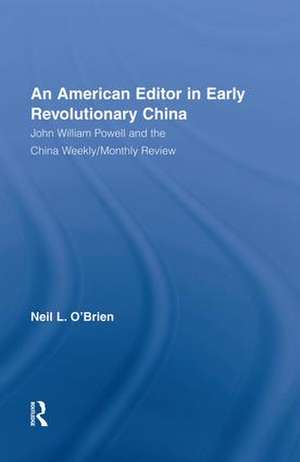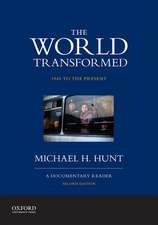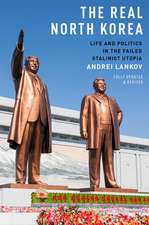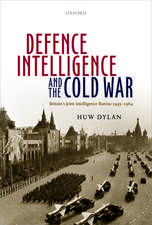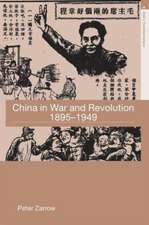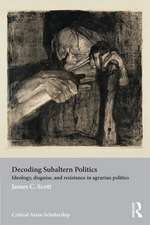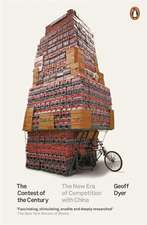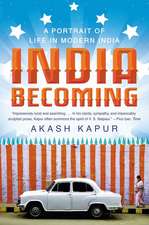American Editor in Early Revolutionary China: John William Powell and the China Weekly/Monthly Review
Autor Neil O'Brienen Limba Engleză Paperback – 8 iun 2015
| Toate formatele și edițiile | Preț | Express |
|---|---|---|
| Paperback (1) | 199.17 lei 6-8 săpt. | |
| Taylor & Francis – 8 iun 2015 | 199.17 lei 6-8 săpt. | |
| Hardback (1) | 374.54 lei 6-8 săpt. | |
| Taylor & Francis – 28 feb 2003 | 374.54 lei 6-8 săpt. |
Preț: 199.17 lei
Nou
Puncte Express: 299
Preț estimativ în valută:
38.11€ • 39.79$ • 31.54£
38.11€ • 39.79$ • 31.54£
Carte tipărită la comandă
Livrare economică 04-18 aprilie
Preluare comenzi: 021 569.72.76
Specificații
ISBN-13: 9781138878990
ISBN-10: 1138878995
Pagini: 332
Dimensiuni: 152 x 229 mm
Greutate: 0.48 kg
Ediția:1
Editura: Taylor & Francis
Colecția Routledge
Locul publicării:Oxford, United Kingdom
ISBN-10: 1138878995
Pagini: 332
Dimensiuni: 152 x 229 mm
Greutate: 0.48 kg
Ediția:1
Editura: Taylor & Francis
Colecția Routledge
Locul publicării:Oxford, United Kingdom
Cuprins
1. Introduction: John William Powell and the China Weekly/Monthly Review , an American Editor in Early Revolutionary China 2. The Strands of Disillusionment, A Three Year Overview of the China Weekly/Monthly Review , 1946-1948: Part 1 3. The Strands of Disillusionment, Part II: Loss of Faith 4. Seasons Change: The Late Fall 1948 and Impending Collapse 5. Plumbing the Unknown: The Months Prior to Takeover, January-May, 1949 6. Shock and Adjustment to the New Order: The Communists Enter Shanghai, May-September, 1949 7. The Review's Campaign for Recognition, June 1949-July 1950 8. Accommodation and Reassessment: The Winds of Ideological Change 9. The Bacteriological Warfare Issue and the Review , Part I: Antecendents and Controversy 10. The Bacteriological Warfare Issue and the Review , Part II 11. Homecoming and Execration 12. Conclusion
Descriere
This is a study of Sino-American relations and the editorial policy of the China Weekly Review/China Monthly Review, published in Shanghai by John William Powell during the Chinese Civil War.
